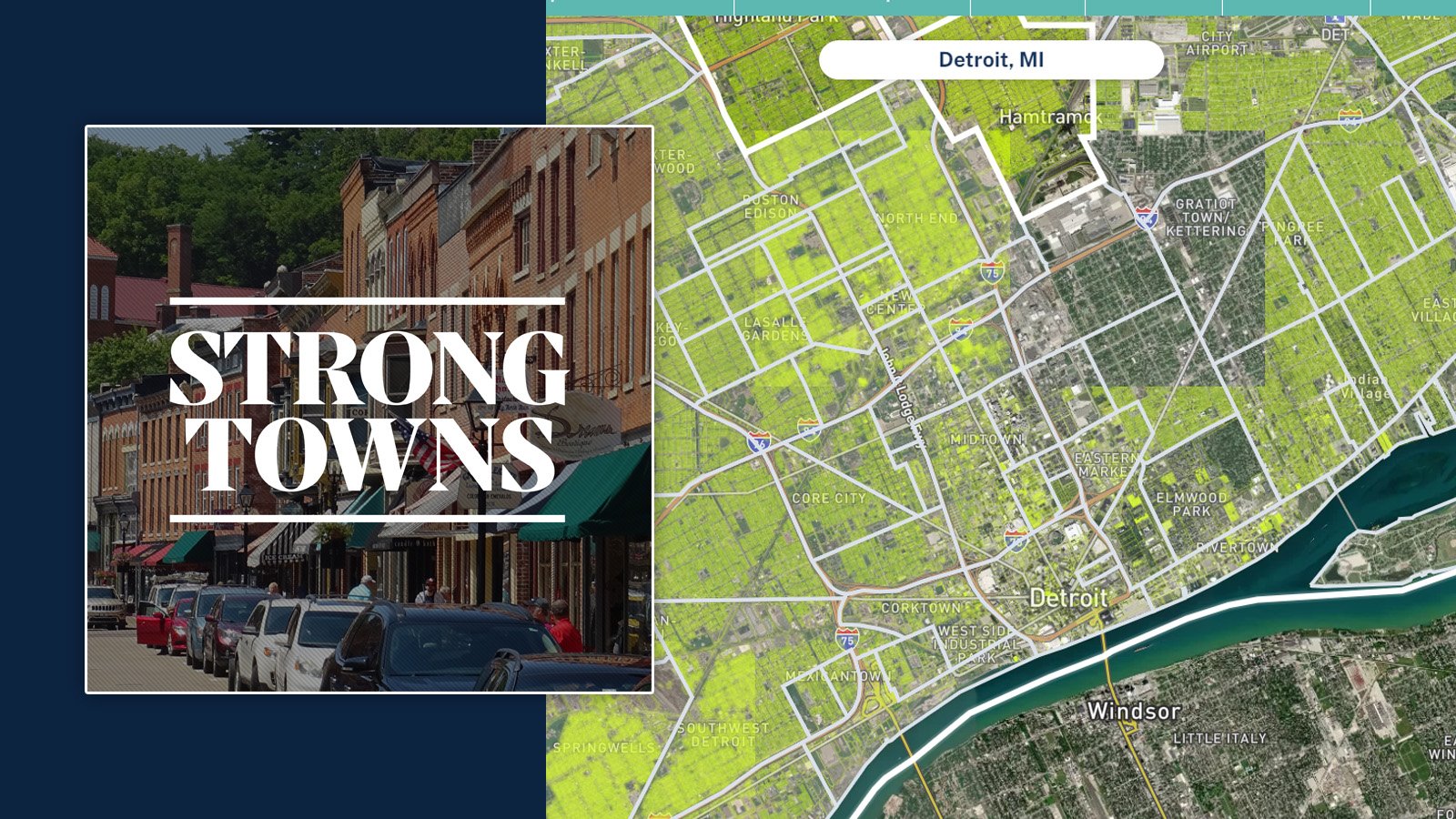This special edition of Upzoned was recorded last week at the 2024 National Gathering. From business owners to zoning reform experts, Abby talks with attendees about their efforts to build stronger towns.
Read MoreMegan Kimble, journalist and author of “City Limits: Infrastructure, Inequality, and the Future of America's Highways,” joins us to talk about highway expansion in Texas and the groups fighting to stop it.
Read MoreThe Messy City is a podcast that discusses urban planning and design issues. Its host, Kevin Klinkenberg, recently invited Strong Towns President Chuck Marohn to appear on an episode. Up for discussion: Chuck’s new book, sports stadiums, and Disney World.
Read MoreBrian Boland is the founder of Bridge Forward Cincinnati, an advocacy group working to reclaim 19 acres of city land from urban highways by changing the design of the Brent Spence Corridor Project.
Read MoreThe city of Cincinnati has pledged $200k to keep the popular bikeshare program Red Bike alive for another year. Joining us to talk about bikeshare programs and Red Bike’s financial difficulties is Bryce Mortera, a member of Civic Cincinnati. Are these programs really beneficial for residents? And if so, is there a more sustainable way to fund them than relying on sponsors?
Read MoreChristian Grey is the executive director of inCOMMON Community Development, an organization that aims to alleviate poverty at a root level by uniting and strengthening vulnerable neighborhoods.
Read MoreThe U.S. Justice Department is investigating the possibility that the major software company RealPage is facilitating price-fixing among large landlords and management firms.
Read MoreThe Strong Towns approach to housing has some obvious differences with NIMBYs, but what about the YIMBY movement?
Read MoreSince the 1970s, the number of cars on I-70 between Denver and its surrounding resorts have jumped more than 500 percent, resulting in gridlock every weekend during ski season. Can this be fixed?
Read MoreWhat percentage of property in any given jurisdiction in the U.S. is locally owned—and are the implications of those numbers? Here to talk with us about it is Alex Alsup of Regrid, which has made the only complete national parcel map.
Read MoreSara Joy Proppe is the founder and director of Proximity Project, a consultancy that helps churches discover how they can use placemaking to connect with the local community.
Read MoreAs the U.S. enters another election year, many Americans are going to be engrossed in the conversation about national politics. And many of our readers want to know where Strong Towns stands on the issue.
Read MoreCincinnati is currently undergoing a significant planning reformation effort, which involves unveiling what’s being called the Connected Communities plan. Joining us to talk about it is Cincinnati urban planner John Yung.
Read MoreArmando Moritz-Chapelliquen is a passionate community organizer in Pennsylvania's Lehigh Valley.
Read MoreBike Talk is a Los Angeles-based radio show dedicated to the idea that we need to prioritize bikes as a form of public transportation, and they recently invited Strong Towns President Chuck Marohn to appear on an episode.
Read MoreSmall-scale developer Coby Lefkowitz joins us to discuss how finance shapes our cities, why debt is used to develop cities, and and why America's housing financial system privileges large-scale institutional development.
Read MoreBenjamin Herold, author of Disillusioned: Five Families and the Unraveling of America’s Suburbs, joins host Chuck Marohn on this week’s episode of the Strong Towns Podcast.
Read MoreMaddy Novich is a criminal justice professor at Manhattan College, a mom of three, and an Instagram influencer living in New York City—you might know her as @cargobikemomma!
Read MoreMichael Schneider, founder of Streets for All and the campaign manager for Healthy Streets Los Angeles, joins us today on Upzoned to talk about the recent ballot proposal, Measure HLA.
Read MoreHow do we get philanthropy involved in community building, and how do we make good investments in our cities and towns? How do we access federal programs and bigger resources effectively?
Read More



















